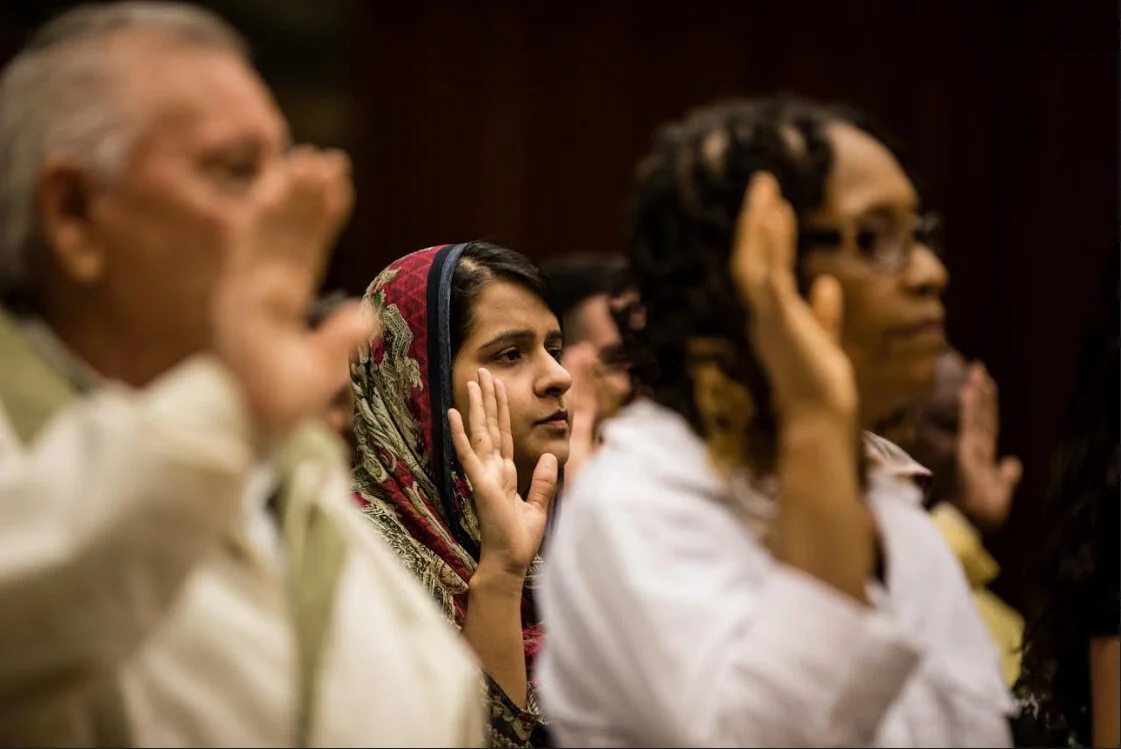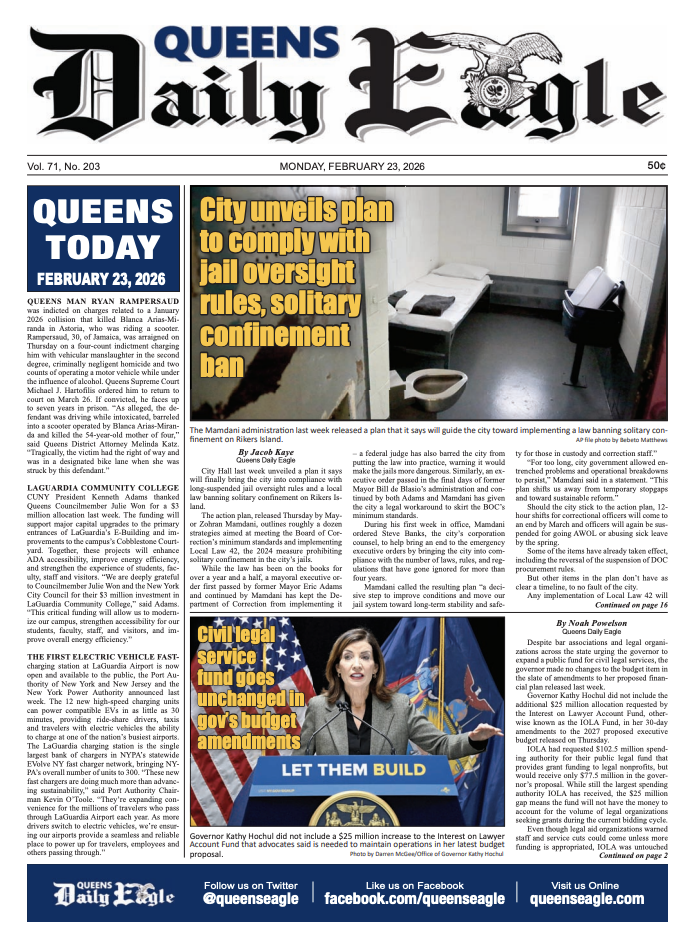After ‘public charge’ setback, advocates urge immigrants to seek legal guidance
/A new U.S. citizen takes the Oath of Allegiance at a special ceremony on Citizenship Day in Brooklyn Federal Court in 2018. The U.S. Supreme Court temporarily lifted a nationwide injunction blocking a federal rule change that would prevent immigrants who receive public assistance from entering the country or achieving permanent residency. Eagle file photos by Paul Frangipane.
By Emma Whitford
Immigrants’ rights advocates in New York urged noncitizen families to seek legal advice Tuesday, following a setback in the fight to block the federal government’s so-called “public charge rule.”
The rule could deny entry and residency to some immigrants who have used, or are eligible for, public assistance for food, housing and healthcare — known in government jargon as “public charges.” Several organizations, including Make the Road New York and the Legal Aid Society, have mounted legal challenges to the measure. New York State Attorney General Letitia James has also sued to block the change.
On Monday the Supreme Court temporarily lifted a nationwide injunction blocking the rule. The decision allows the Trump Administration to begin implementing it while the challenges are underway. The court’s decision is likely to prevail at least until oral arguments scheduled for March 2.
“We have been fighting to see that this rule never goes into effect, but now that it is, if even for a brief time, it is critical that immigrants and their families making decisions about using public benefits consult legal advocates who understand the rule before assuming it applies to them,” said Susan Welber, a staff attorney in the Civil Practice Law Reform Unit at the Legal Aid Society, who represents plaintiffs in one challenge.
Welber told the Eagle that while the “public charge” rule has already had a chilling effect, many noncitizens are not impacted.
“The rule applies to a very specific group of intending immigrants: people who are seeking to get a green card through a family member,” she said.
Those exempt include people seeking naturalization, immigrants who already have a green card, and immigrants who have a conditional green card. Asylees and refugees are also exempt.
Nevertheless, as many as 475,000 New Yorkers could be impacted by the “public charge” rule, according to the Mayor’s Office.
In Queens, where 47 percent of residents are immigrants, confusion about the rule and these incremental court updates remains a real concern.
Former Borough President Melinda Katz met with the Queens Immigration Task Force last year to discuss the “public charge” rule change. Photo courtesy of Borough Hall, file.
“There are a lot of people who already … have been reluctant to take part in government-funded programs based on the fear that the law will impact them in the future,” Welber said.
President Donald Trump proposed denying protections to some immigrants who qualify for services such as Medicaid, Section 8 and the Supplemental Nutrition Assistance Program last year.
The “public charge” rule was originally scheduled to take effect on Oct. 15, 2019, but has been held up in court. Make the Road NY sued the Trump Administration in August, along with co-plaintiffs the African Services Committee, Asian American Federation, Catholic Charities Community Services and Catholic Legal Immigration Network.
The Center for Constitutional Rights and Paul, Weiss, Rifkind, Wharton & Garrison LLP and Legal Aid represent the organizations.
James filed a lawsuit on behalf of the state in August, and announced the preliminary injunction on Oct. 11, 2019.
Commissioner Bitta Mostofi of the Mayor’s Office of Immigrant Affairs urged concerned New Yorkers to direct their questions about immigration and public benefits to the confidential ActionNYC hotline at 1-800-354-0365. People can also call 311 and say "Public Charge.”
“The City will do everything in its power to connect people to the resources they need and to help dispel the confusion the rule has created,” Mostofi said in a statement. “It’s important to know that eligibility for public benefits has not changed and many immigrants are not affected by public charge. It is also important to know that the case is still being fought in court. Don’t stop using public benefits unnecessarily.”





